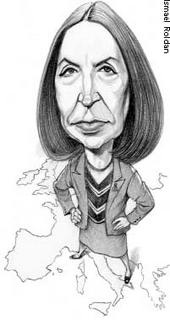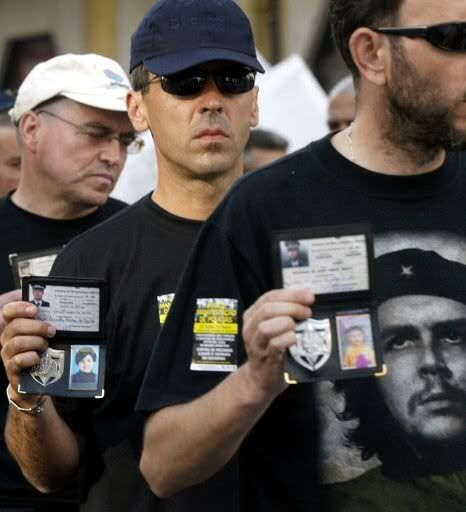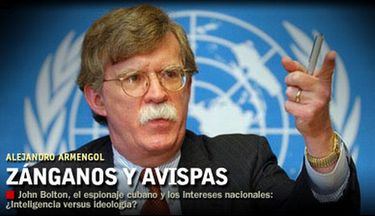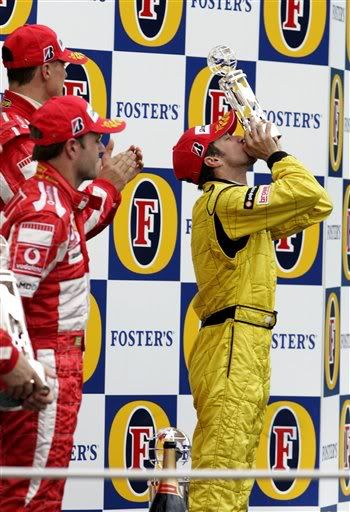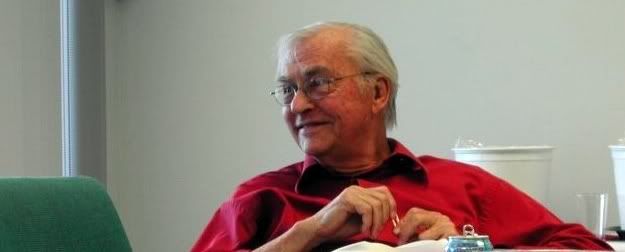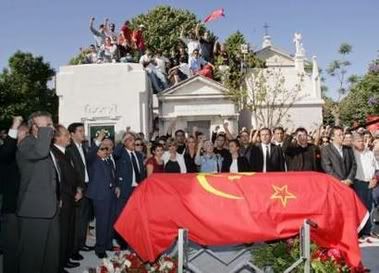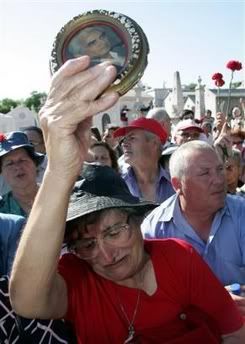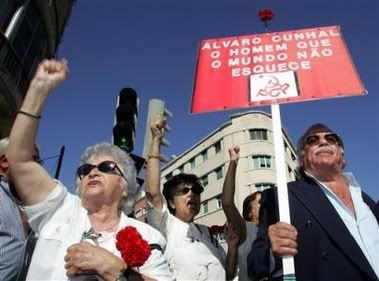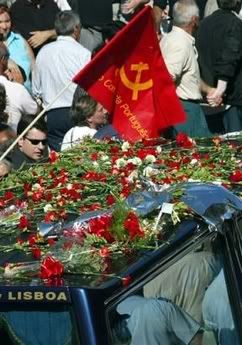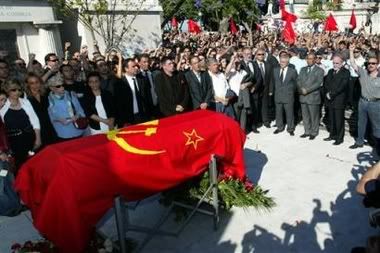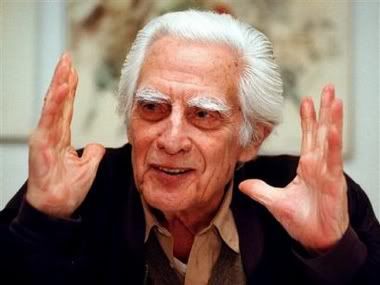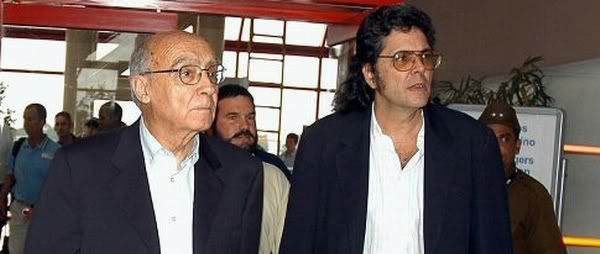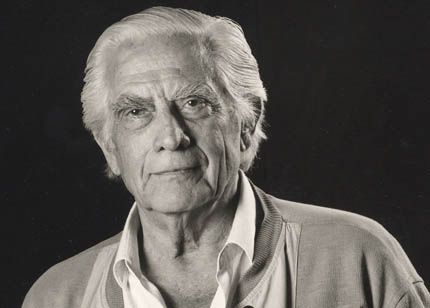
 Jim DeFede The Miami HeraldHAVANA
Jim DeFede The Miami HeraldHAVANA - Ricardo Alarcon sank into a chair in a meeting room at the National Assembly. Two aides sat across from him as the drone of an air conditioner -- a sign of power and prestige -- filled the room with noise. As everyone settled in, a young woman entered the room with a tray full of tall glasses of watermelon juice.
''OK,'' he said to me, signaling the start of our interview. As the current president of the National Assembly, as well as Cuba's former ambassador to the United Nations, Alarcon is one of Cuba's most recognizable and powerful figures behind Fidel Castro.
He has waged rhetorical war against the United States for decades, and the two hours we spent talking in English earlier this month was no exception.
The primary focus of his assault was Luis Posada Carriles, the man Alarcon says masterminded the bombing of a Cubana airliner in 1976, killing 73 people. The Cuban government also accuses Posada of orchestrating a series of bombings inside Havana hotels and other tourist sites in 1997 that killed an Italian tourist. At the time, Posada openly bragged about the bombings, although he later recanted part of his story. Today he refuses to discuss the bombings.
Posada snuck into the United States three months ago and is seeking asylum. Venezuela wants Posada extradited to Caracas so he can be tried on the Cubana bombing. (Posada was acquitted once by a military panel in Venezuela, but that verdict was set aside and he escaped from prison in 1985 while a retrial was still pending.)
As we began to talk, Alarcon opened a folder full of international treaties on terrorism and read from each one, starting with The Convention for the Suppression of Unlawful Acts Against the Safety of Civil Aviation, drafted in 1971 in Montreal.
The United States has signed all of these treaties. The language is almost always identical. They state that if a country refuses to extradite an accused terrorist, then that country is ``obliged, without exception whatsoever and whether or not the offense was committed in its territory, to submit the case to its competent authorities for the purpose of prosecution.''
In other words, he says, if the United States refuses to extradite Posada to Venezuela, the United States must try Posada for the Cubana bombing.
The United States ''knows about these documents,'' Alarcon said. ``They are ignoring all these conventions, and that is a very grave situation. There is no option. It is the language in every convention. Either you extradite or you prosecute. There is no third way.''
Isn't Cuba being hypocritical, since it harbors dozens of suspected terrorists?
''Give me one name,'' he shot back.
I offer him the name U.S. officials frequently cite: Joanne Chesimard, a Black Panther militant known in Cuba as Assata Shakur, who was sentenced to life in prison for murdering a New Jersey state trooper. She escaped prison in 1979 and has lived in Cuba for the past 20 years.
''Is she an international terrorist?'' Alarcon replied. ``Has she been accused of anything after she escaped from prison? She is not conspiring from Cuba to invade the U.S. or plant bombs there.''
But she has been convicted of murder, I said. Posada hasn't been convicted of anything.
''She was accused of some shooting,'' he said dismissively.
''Of killing a police officer,'' I interrupt.
''Yes,'' he said, ``and this is not terrorism. This is a violent act allegedly committed in which she was involved. But in your country this happens every day, at primary schools or on any corner. That's wrong, that should be punished, but it is not international terrorism.''
How about the members of ETA (Basque separatists) and Colombian guerrillas, including members of the FARC who are known to be in Cuba?
''The ETA people came here at the request of the Spanish government,'' Alarcon argued. ``Each time the Spanish government is asked that question they will tell you the same thing. The Colombians? How many times does the Colombian government have to tell you that they have no problem with Cuba regarding that. That Cuba has been helping them with the peace negotiations and that they have participated in meetings with those people in Cuba.''
During my visit to Cuba, I told Alarcon I've received many e-mails from angry Cuban Americans.
''I saw some letters published in The Herald,'' he grinned.
1994 TUGBOAT SINKINGMany of those e-mails talk about the 1994 carnage aboard the 13 de Marzo, a tugboat crowded with 71 people that tried to escape Havana harbor and come to the United States. Three Cuban ships attacked the tugboat, ramming it and using high-pressured water cannons to douse those on deck until the tugboat capsized. Forty-one people, including 23 children, drowned.
I asked Alarcon a question I've been asked in recent days: When will the families of those victims have their day in court? When will the crew responsible for the deaths of those 41 men, women and children be placed on trial?
Alarcon stares at me for a moment, rolling a cigar between his fingers.
``Do you really believe that we deliberately sunk a tugboat in Havana harbor just to kill those people?''
''There are many people in Miami who believe just that,'' I said.
''So what? They think many things. They think we eat children,'' he replied. He changed the subject. He moved on to ripping the United States, saying it's out of step with the rest of the world, increasingly isolated for its policies.
I stuck to the tugboat. Survivors say it was clear to them the Cuban vessels were intent on sinking the tugboat. Some of them describe standing along the side of the boat, holding some of the children in their arms, so the Cuban officers on those vessels would see that there were children on board. But it didn't matter.
''What happened?'' I ask.
''An accident, clearly an accident that we deplore very much,'' he said. ``But it has been overplayed in Miami along with other alleged incidents that have been invented in Miami.''
Are you referring to the shoot-down of the Brothers to the Rescue planes?
''Of course,'' he said. ``Some day we will declassify what we have on Brothers to the Rescue, and then the rest of the world will understand.''
He makes no mention of the U.N. investigation that found the Cuban government's actions outrageous and that the shooting occurred in international waters. It's clear he was done with these subjects.
Several times during our talk, Alarcon made reference to how the United States ''enjoys the First Amendment,'' sarcastically arguing that Americans are wildly misinformed about the world.
I brought up the 75 dissidents, including many independent journalists, arrested in 2003 and given lengthy prison terms.
Can Cuba not tolerate the freedoms embodied in the First Amendment?
''First have the U.S. get off of our shoulders,'' he said sternly. ``Have the United States abandon its policy of provocation against Cuba, which is part and parcel of their aim to dominate Cuba. That's the real issue.''
SHIFTING BLAMEI suggested Cuba likes having the United States as an enemy. That the Cuban government wants the embargo in place so it can blame its food shortages and economic problems on us rather than on its own failed policies.
Many people believe, I said, that every time the United States seems on the verge of easing sanctions or the embargo, Cuba does something provocative to keep the embargo in place -- like downing the Brothers to the Rescue planes.
Alarcon laughed.
''What is the logical conclusion to that argument?'' he said. ''Free the Cuban Five'' -- referring to the Cubans in American prisons for espionage -- ''and arrest immediately Roger Noriega, Sen. Jesse Helms, Congressmen Dan Burton, Ileana Ros Lehtinen and Lincoln Diaz Balart'' -- historically the embargo's biggest supporters -- ``because they are the Cuban agents. They have been doing, according to that theory, what is in our interest. They are the real agents sent by Cuba to establish that policy that will help us.''
It's a non answer, albeit a clever one.
''Lift the embargo. Lift the excuse. Let's do this: Lift the embargo for one year, and let's see what happens. One year without this excuse,'' he added. ``I have spent much of my life denouncing it. What shall I do with no more embargo? Well, I will write my memoirs. . . .
``If you think we are using Mr. Posada, simply abide by these laws and extradite him or prosecute him and that's the end of it.''
I asked him why Cuba has been cutting back on economic reforms it instituted in the early 1990s, such as individuals operating their own small businesses.
''When we introduced those measures, we said clearly we didn't like them,'' Alarcon said, adding that now the economy is improving.
''Thanks to Mr. Chávez,'' I said, referring to Venezuelan President Hugo Chávez, who has significantly bolstered Cuba's poor economy by sending Cuba up to 90,000 barrels of oil a day on highly favorable financial terms.
''No, no, no,'' Alarcon said. ``You see that's an example of American perception.''
He argued there were ''many factors,'' including Cuba discovering more oil of its own, nickel production at an all-time high and a recent trade agreement with China.
EARLIER REFORMSIs Cuba pulling back on the earlier reforms because it fears economic freedom will lead people to demand political freedom as well?
''Well, I do not agree that more economic freedom will make people want more political freedom,'' he said.
What happens to Cuba when Fidel Castro dies?
Alarcon says there's a succession plan. Then he said President Bush often talks about how the United States will ensure a ''free Cuba'' in a post-Castro world.
Alarcon predicts an American intervention when Castro dies.
A military intervention? You don't believe that do you?
''You have,'' he said, ``an unbelievable government.''


